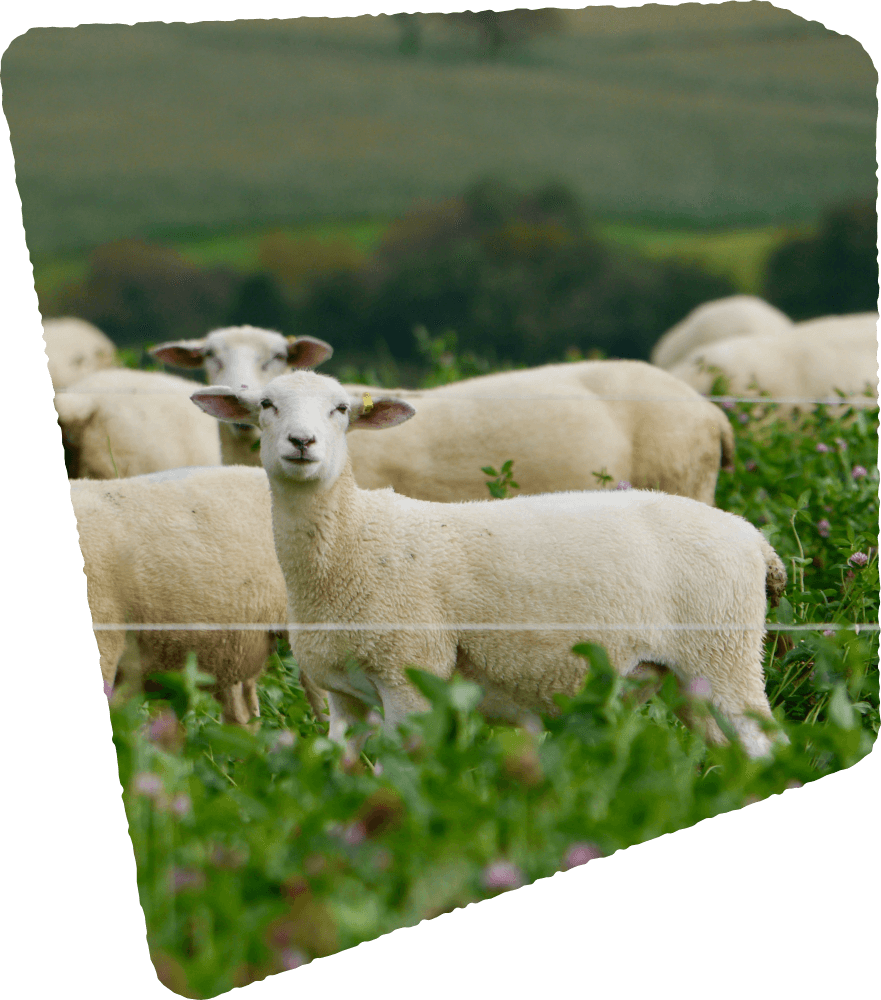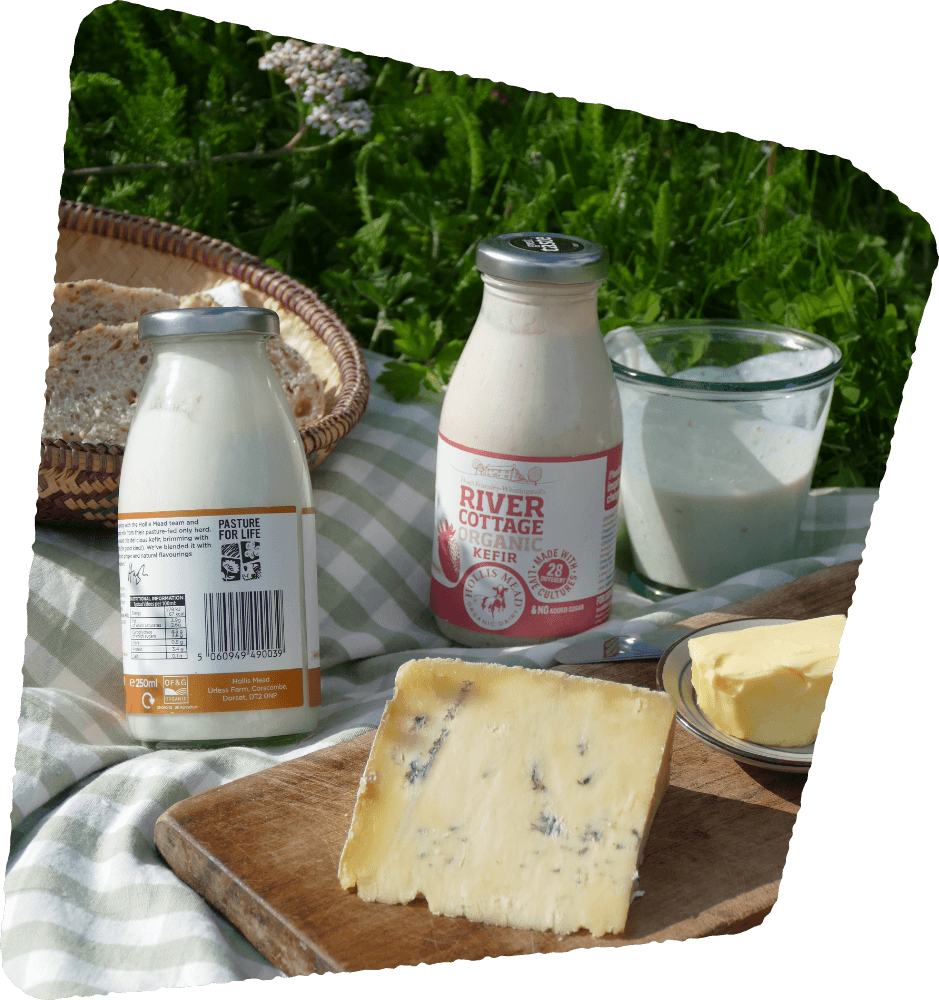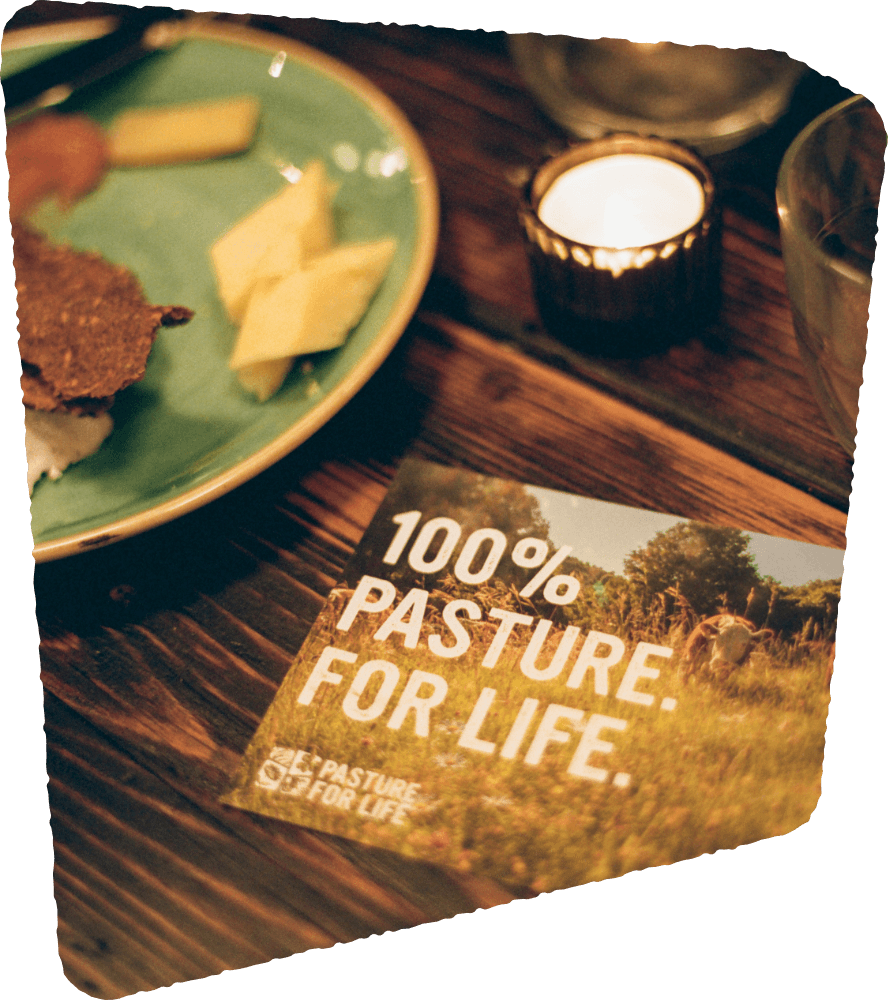Certification
Farms become Certified Enterprises raising 100% Pasture for Life certified animals. Beyond the farm gate, butchers, creameries, wholesalers, manufacturers, retailers and restaurants who'd like to sell PfL Certified Produce, become Approved Businesses.
Why become certified?
Become a Certified Enterprise100% pasture-fed has impact
We know that raising animals on 100% pasture benefits the UK economy, our planet, animal welfare, and human health. Certification means committing to methods that the evidence proves can futureproof the UK's food and farming systems.
Gain the recognition you deserve
To be labelled as grass-fed under Defra rules, animals only require 51% of their diet to be grass-based. The Pasture for Life certification mark allows UK farmers to guarantee that an animal has been raised on 100% pasture.
Transparency from field to fork to fashion
Farms become Certified Enterprises raising 100% Pasture for Life animals. Approved Businesses carry this credit all the way to the end customer. This guarantees that they process, pack, sell or serve pasture-raised meat, dairy or fibre (either exclusively, or alongside other produce). Our certified farms and approved businesses are key to achieving total transparency all the way down the supply chain.
Kate Martin, Certified Treway Farm
"Pasture for Life has been a huge and frankly fundamental part of moving our business forward."
Where to buy pasture fed meat
You're in good company
The process and the benefits of certification
Challons Combe Organics, Devon
From grain fed to pasture fed: Peter and Mary Fish on how they turned their Devon dairy to fully pasture fed, improving animal health, nature, and business resilience.
Finishing Wagyu on pasture
Norfolk Wagyu farmer Sarah Juggins discusses her move towards Pasture for Life certification
The Inkpot Farm, Lincolnshire
Hannah Thorogood on seeking certification for her organic hers of Lincoln Red cattle and flock of sheep.

100% pasture. 100% of their life
Our standards
Certification is guided by our standards: a set of rules rooted in the practical experiences of our farmers and backed by rigorous research. They offer a clear definition of what is meant by Pasture for Life certified.
The key? That animals eat a 100% pasture-based diet for their entire life, with the exception of milk consumed by young prior to weaning. When pasture is growing in the fields, animals must be grazing. In the winter, they can be given conserved forage in the form of hay, silage or haylage.
Pasture and forage includes:
- Grasses — both annual and perennial species
- Legumes — such as clovers, birdsfoot trefoil, lucerne, sainfoin and vetches
- Herbs — including yarrow, burnet, chicory, plantain, common sorrel and dandelion
- Brassicas — such as kale and turnips, as part of a mixed ley, with at least one non brassica or root crop species may be grazed, but not harvested (NB. Fodder beet is prohibited)

Certified Cotswold Beef by Ian Boyd
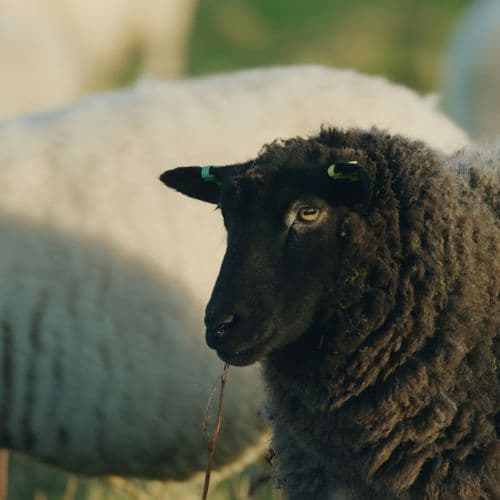
Other permitted feed:
- Arable silage or wholecrop — when grown as a mix that includes at least one other non-cereal crop species, and grazed or harvested in the early vegetative stage of the cereal crops
- Browsing of shrubby growth and trees
- Straw (without grain)
What's prohibited?
Animals cannot be fed any form of grain or concentrate feeds. This includes soya, maize, wheat, barley, oats, dry harvested grain legumes, or any products derived from them. By-products from food processing, waste food products such as bread, and fodder beet are also prohibited.
Monocultures are prohibited, as we know that healthy systems are built on diversity. Genetically modified ingredients and feed additives that may be used to enhance or modify animal performance are also prohibited.
Intensive livestock production relies on these to accelerate animal growth and production. But we know that they can have a negative impact on animal welfare, the environment, and human health.
What about low-input systems?
We focus on the diet of ruminant livestock, but high animal welfare, sustainable pasture management, enriching biodiversity and looking after the environment are also fundamental elements of our membership and certification standards.
We advocate for the fact that it makes good financial and environmental sense to avoid the use of artificial fertilisers and pesticides. Many Pasture for Life producers are farming without such inputs, with a third of them being both Organic and Pasture for Life certified.

Read the research backing our standards [bug: waiting on links]
Rigorous research
-500x500.jpg&w=1080&q=75)
Biodiversity and the wider environment
The relationship between our standards and grazing animals, insects, and the wider food web.
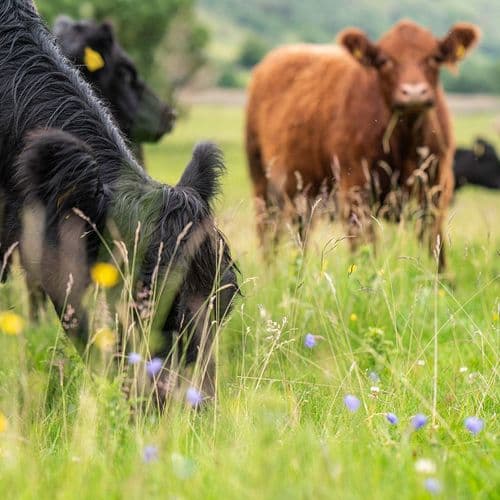
Mob grazing boosts biodiversity
A report from a five-farm project using mob grazing to improve grassland biodiversity, soil health, and pasture productivity.
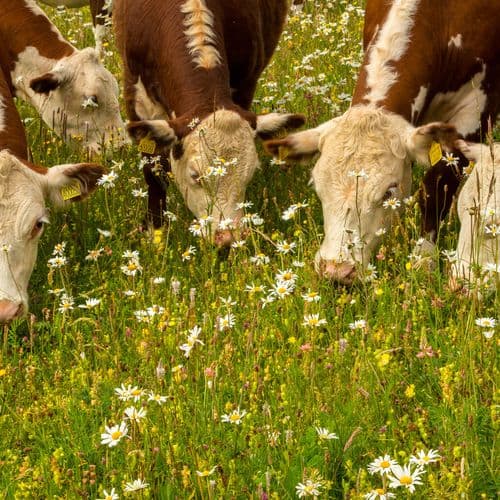
Mob grazing cuts emissions and boosts soil carbon
Research comparing mob grazing to feedlot systems reveals lower emissions and major gains in soil carbon sequestration.

FAQs
Certified Enterprise FAQs
View frequently asked questions about certification. From the main reasons to become Certified to fees, inspections, exemptions and marketing support.
Approved Business FAQs
View frequently asked questions about approval. From the reasons to become an Approved Business to definitions of the terms, feed, and marketing support.
General FAQs
View frequently asked questions about Pasture for Life. From the difference between grass-fed and 100% pasture-raised to the economic, environmental, and health benefits of a pasture-based system.


